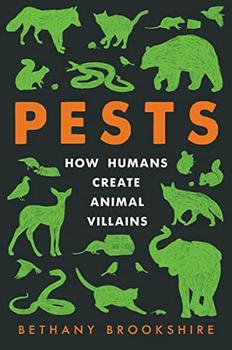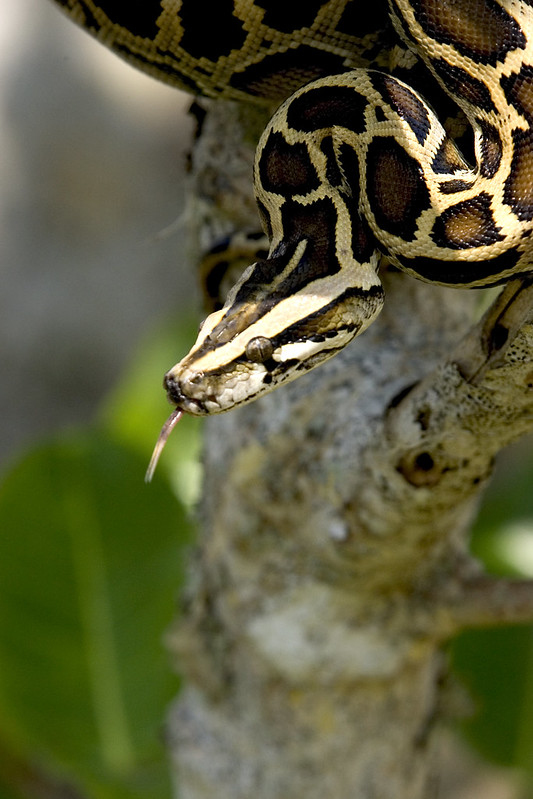Summary | Excerpt | Reviews | Beyond the Book | Read-Alikes | Genres & Themes | Author Bio

How Humans Create Animal Villains
by Bethany BrookshireThis article relates to Pests
 In her book Pests, Bethany Brookshire provides several examples of introduced species becoming huge destroyers of local wildlife and ecosystems. One of the most well-known (and perhaps, if you dislike snakes as much as I do, most terrifying) examples of this phenomenon is the Burmese python in Florida. A whole section of the Florida Fish and Wildlife Conservation Commission website is devoted to documenting the extent of the problem—and enlisting residents to try to bring it under control.
In her book Pests, Bethany Brookshire provides several examples of introduced species becoming huge destroyers of local wildlife and ecosystems. One of the most well-known (and perhaps, if you dislike snakes as much as I do, most terrifying) examples of this phenomenon is the Burmese python in Florida. A whole section of the Florida Fish and Wildlife Conservation Commission website is devoted to documenting the extent of the problem—and enlisting residents to try to bring it under control.
Opinions vary about precisely when and how this species, which is native to Southeast Asia, arrived in the Florida Everglades. The issue started sometime in the late 1970s and 1980s, when some owners of exotic snakes took to abandoning their pets in South Florida wetlands. According to some sources, the problem became widespread after 1992's Hurricane Andrew destroyed a python-breeding facility, allowing dozens of the animals to escape into nearby swamps. Current estimates place the number of Burmese pythons in Florida at anywhere from 100,000 to over a million.
Burmese pythons are huge (they can grow to 20 feet or more and have the diameter of a telephone pole), reproduce quickly (females can produce 50-100 eggs per year), and have few natural predators—indeed, alligators and crocodiles have been found in the stomachs of these snakes. They have quickly established themselves as the region's top predators, decimating small mammal and bird populations, as well as attacking larger mammals and livestock.
As the Florida Fish and Wildlife Conservation Commission outlines, solving the python invasion is a matter for collective action. Their website offers extensive information on how to identify Burmese pythons—and on how to humanely kill them. It also offers information about the so-called Python Patrol (a free training program that teaches people how to take action on the python problem) and the annual Florida Python Challenge, which, as Brookshire describes in her book, offers a cash prize to the most successful python hunter during the challenge period. But finding—let alone killing—even one of these massive snakes is easier said than done. They are masters of camouflage, and the fact that relatively few roads cut through the otherwise impassable wilderness of southern Florida means that they find it all too easy to evade even the savviest human trackers.
Burmese python, courtesy of Everglades National Park
Filed under Nature and the Environment
![]() This "beyond the book article" relates to Pests. It originally ran in January 2023 and has been updated for the
December 2023 paperback edition.
Go to magazine.
This "beyond the book article" relates to Pests. It originally ran in January 2023 and has been updated for the
December 2023 paperback edition.
Go to magazine.
Your guide toexceptional books
BookBrowse seeks out and recommends the best in contemporary fiction and nonfiction—books that not only engage and entertain but also deepen our understanding of ourselves and the world around us.